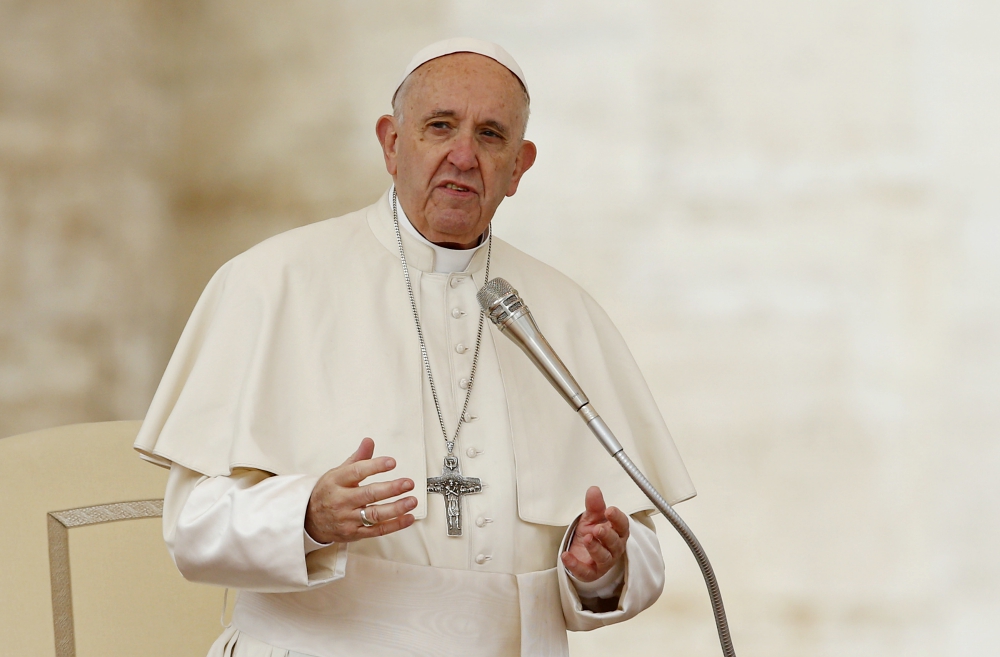
Pope Francis leads a prayer during his general audience in St. Peter's Square at the Vatican April 11. (CNS/Paul Haring)
Pope Francis has admitted making "serious mistakes" in his handling of clergy sexual abuse cases in Chile, telling the country's bishops in a lengthy letter that he feels "pain and shame" for the "crucified lives" of those who suffered abuse.
But Francis has not revealed whether he will sack a Chilean prelate accused of covering up abuse, whom he has previously defended to the outrage of abuse survivors. Instead, Francis has asked the country's bishops to come to Rome en masse for a meeting at some point soon.
In a letter released late April 11, Francis is reporting to the bishops about the mission of Maltese Archbishop Charles Scicluna, whom the pope sent to Chile in February to interview abuse victims and look into the case of Bishop Juan Barros Madrid.
"I have made serious mistakes in the assessment and my perception of the situation, especially due to a lack of truthful and balanced information," Francis says in the letter.
Revealing that Scicluna's team took 64 testimonies from sexual abuse victims during its visit, the pope says the testimonies speak together "of many crucified lives, and I confess that it causes me pain and shame."
"I apologize to all those I have offended," the pope continues, adding that he plans to apologize personally to some of the survivors who gave testimony "in the coming weeks."
Barros, whom Francis appointed to the small diocese of Osorno in 2015, has been accused of protecting notorious abuser Fr. Fernando Karadima as a priest in the 1980s and '90s.
Francis twice defended the prelate during his Jan. 15-18 trip to Chile, calling the accusations against Barros "calumny" and even saying then he was "convinced he is innocent."
During the press conference on the way back to Rome, Francis also revealed that he had twice refused to accept Barros' resignation. He said then he thought it would be "admitting anticipated guilt."
Advertisement
The Chilean bishops are meeting this week for a plenary assembly. Francis says he wanted to write to them now to "humbly request" their help "in discerning the short, medium and long term measures to be taken to reestablish ecclesial communion in Chile, with the objective to repair the scandal as much as possible and restore justice."
He then says he plans to call them to Rome to discuss his "conclusions" after reading the report Scicluna prepared following his February visit to the country.
Francis' trip to Chile was the worst received yet of his five-year papacy. Crowds at most events were not as large as anticipated, and he faced protests each day from those expressing anger at his appointment of Barros and the church's wider handling of the abuse crisis.
Several churches were even firebombed before and during the visit, with threatening notes left at the scenes of the attacks.
Survivor advocates said Francis' defense of Barros had brought the church back to the bleakest point of the abuse crisis, when clergy abuse victims were afraid to come forward for fear of not being believed.
[Joshua J. McElwee is NCR Vatican correspondent. His email address is jmcelwee@ncronline.org. Follow him on Twitter: @joshjmac.]







